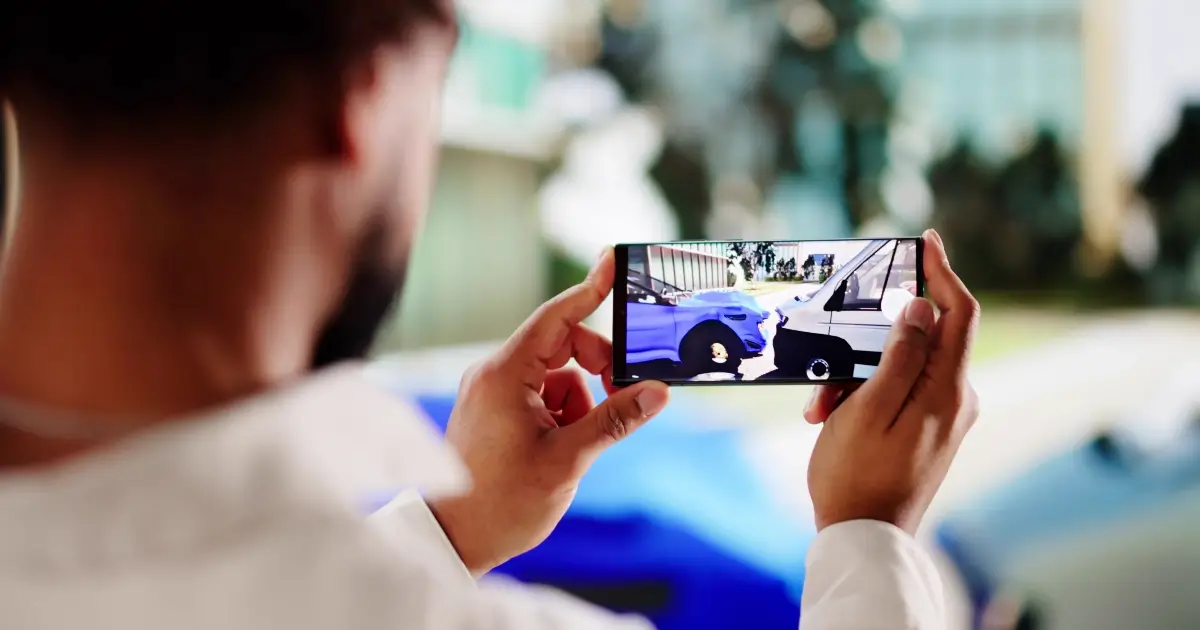5 Damaging Mistakes Crash Victims Often Make and What They Should Do Instead

The actions you take immediately after a car accident can impact whether you are able to recover full compensation or lose thousands of dollars – or more – in potential recovery. Insurance companies actively look for mistakes that crash victims make, using them as an opportunity to reduce or deny claims.
At Cooney & Conway, our experienced car accident lawyers in Chicago have seen how even small errors during the claims process can devastate otherwise strong cases. We help accident victims understand their rights and avoid the common pitfalls that insurance companies exploit to minimize payouts.
If you have been injured in a car accident, contact Cooney & Conway today for a free consultation. One of our knowledgeable attorneys will review your case and discuss what legal options may be available to you. Your initial consultation is FREE, confidential, and carries absolutely no risk or obligation.
Call (800) 322-5573 to request your FREE case review today.
Mistake #1 – Admitting Fault or Apologizing at the Accident Scene
In the first moments after a crash, many victims instinctively apologize or make statements like “I am so sorry” or “I did not see you” at the scene. These natural expressions of concern or politeness can severely damage your ability to recover compensation. Insurance companies treat any admission or apology as evidence that you accept responsibility for causing the crash, even when the other driver violated traffic laws or drove negligently.
Why This Matters
Illinois follows a modified comparative negligence rule, which means your compensation decreases by every percentage of fault assessed against you. If you are found 50 percent or more at fault, this rule bars you from recovering any compensation at all.
How Will Anyone Know or Remember What You Say?
We live in a digital world, so there are numerous ways your comments and actions can be recorded and preserved. Here are a few ways an apology or something else you say that sounds like an admission of fault can be documented:
- On dashcam video
- Observed and documented in your police report by the responding officer
- Witnessed by bystanders
- Captured on video by a bystander or the other party involved in the crash
It is best to remain calm and remain aware that anything you say and do at the crash scene may be captured or documented. Even well intended words, like an apology, could be taken out of context later and used against you.
What You Should Say at the Accident Scene
Be courteous and honest, but limit your communication to essential information only. Provide your name, insurance information, and contact details to the other driver and responding police officers. Answer police questions factually without speculating about what happened or why. If you are unsure about something, say you do not know rather than guessing.
What You Should Do Instead of Apologizing
Focus on documenting the scene and gathering evidence. Investigators will photograph the crash scene and gather evidence, so do not put yourself or others at risk.
If, however, you are physically able and can do so safely, such as from your car or once you are out of traffic:
- Take photos of the crash scene, vehicle damage, road conditions, nearby road signs, visible injuries.
- Collect the names and contact details of witnesses who say they saw the accident occur.
- Seek immediate medical attention to protect your health and rule out internal injuries.
- Request a copy of your police report as soon as it becomes available.
- Contact a personal injury attorney before discussing your accident with any insurance company.
Mistake #2 – Delaying Medical Treatment or Skipping Follow-Up Appointments
One of the most damaging mistakes car accident victims make is waiting days or weeks to seek medical treatment after a crash.
Why Insurance Companies Love Treatment Delays
Insurance companies aggressively use treatment delays to argue that you were not hurt badly, your injuries were caused by something other than the accident, or do not exist at all. When you wait to go to the ER or urgent care center to be examined after a crash, adjusters will say that your injuries are minor and that you are claiming they are worse now to get money. In short, waiting to get a proper medical examination and treatment after your car accident makes it extremely difficult to prove your injuries were caused by that crash.
Failing to Follow-Up: Missing or Skipping Appointments
Skipping follow-up appointments or failing to complete prescribed treatment plans – including physical therapy – gives insurance companies additional ammunition to deny your claim. Missing appointments suggests you have fully recovered from your injuries or that they were never as severe as you claimed. Insurance adjusters review your complete medical records looking for gaps in treatment, and they use these gaps to reduce settlement offers or deny claims entirely. Always attend every scheduled appointment, follow your doctor’s treatment recommendations, and document any reasons you cannot make an appointment due to circumstances beyond your control.
Mistake #3 – Accepting the First Settlement Offer Without Understanding Your Injuries
Insurance companies frequently contact accident victims within days of a crash and present quick settlement offers that seem generous, especially to victims missing work while recovering. These early offers are deliberately low because adjusters know many victims will not have called a lawyer yet and very likely don’t fully know their rights.
Why Initial Settlement Offers Are Inadequate
Insurance adjusters make their first offers before you reach maximum medical improvement, which is the point in your recovery when your doctor determines you have healed as much as possible from your injuries. Many car accident injuries like whiplash, herniated discs, and soft tissue damage take weeks or months to fully develop. Accepting an early settlement prevents you from seeking additional compensation when you discover your injuries are more serious than initially believed or require ongoing treatment.
The Danger of Settling Too Quickly
Once you accept a settlement and sign a release, you cannot reopen your claim or ask for more money, even if you discover additional injuries or complications. You may face years of medical treatment, physical therapy, or even surgery that the settlement does not cover. Future lost wages, reduced earning capacity, and permanent disability cannot be compensated after you settle your claim.
What to Do Instead of Accepting a Quick Settlement
Contact an experienced car accident lawyer in Chicago before you consider any offer to settle. Never accept any settlement offer without first consulting with an attorney who will evaluate your situation to determine whether the offer adequately covers all your current and future damages. Without even knowing the full value of your case, a settlement offer is too low if the following is true:
- You are still undergoing medical treatment for your injuries
- Your vehicle has not been repaired or replaced
- You have not been able to return to work
- Pain is still being managed by medication
- It is difficult or impossible to do basic daily household or hygiene tasks without help
Mistake #4 – Posting About Your Accident on Social Media
Insurance companies and their investigators routinely monitor the social media accounts of accident victims looking for posts, photos, or comments that contradict injury claims. Even innocent posts about your daily activities can be taken out of context and used to argue you are not as injured as you claim.
What type of social media content can damage your claim:
- Photos Showing Physical Activity: Innocent pictures of you standing, walking, or participating in any activity can be used against you. The photos may have nothing to do with your accident, but insurance companies can still use them. They can use them as visual evidence that your injuries are not severe as you claim, even if the photo does not reflect your actual pain levels or limitations.
- Check-Ins at Restaurants or Events: Location tags suggesting you are out socializing can be presented as evidence. They help to show you have recovered or that your injuries do not prevent you from enjoying normal activities.
- Comments About Your Accident or Injuries: Any statement you make about how you feel or what happened in the accident can be used against you. Even just making simple comments about how your recovery is progressing can be misinterpreted or taken out of context during settlement negotiations.
- Posts About Your Settlement or Legal Case: Discussing your claim, attorney, or potential compensation publicly can harm your negotiating position and may violate attorney-client confidentiality expectations.
- Photos of Vehicle Damage: Posting pictures that minimize the apparent damage to your vehicle allows insurance companies to argue the impact was too minor to cause serious injuries.
Until your claim is fully resolved, the safest approach is to avoid posting anything about your accident, injuries, treatment, or legal case on any social media platform. Set all your social media accounts to private, do not accept friend requests from people you do not know personally, and inform friends and family not to tag you in posts or photos.
Mistake #5 – Giving a Recorded Statement to the Insurance Company Without Legal Advice
Insurance adjusters often contact accident victims within hours of a crash to request a recorded statement about what happened.
The Insurance Company Has Different Goals Than You Do
Adjusters are trained to be friendly and courteous, and they will present the request as routine or required. But it is important to remember, that the insurance company’s goals are not the same as yours. Their goal is to minimize what they pay you to protect their profit margin. In other words, recorded statements are designed to protect the insurance company, not you.
Adjusters Record Your Statement to Benefit Them
Adjusters are trained to ask questions that elicit responses they can use to deny your claim or reduce your settlement. During recorded statements, they will ask seemingly innocent questions about your injuries, how the accident happened, and your medical history. They listen for any inconsistencies, minimizations of your injuries, or statements that suggest you contributed to causing the accident. You may innocently provide information that undermines your claim before you fully understand your injuries or legal rights.
You Do Not Have to Give a Statement Without Legal Representation
While you must cooperate with your insurance company under your policy terms, you do not have to give a recorded statement to the other driver’s insurance company without legal representation.
What to Do Instead
Before giving any recorded statement, consult with a personal injury attorney first. Your attorney will advise you on what questions to expect, how to answer accurately without damaging your claim, and whether you should provide a statement at all.
An experienced attorney can communicate with insurance adjusters on your behalf, protecting you from tactics designed to devalue your claim. If you must give a statement, your attorney can be present to ensure questions are appropriate and that your rights are protected throughout the process.
Protecting Your Rights After a Chicago Car Accident
Avoiding these five common mistakes significantly improves your chances of recovering fair compensation for your damages after a car accident.
At Cooney & Conway, our highly qualified legal team is ready to protect your legal rights from day one after a car crash. When we manage your case, we work tirelessly on your behalf, communicate with the insurance company, gather evidence for your claim, and negotiate aggressively to maximize your settlement.
Do you need legal help after a car crash in Chicago? If so, contact Cooney & Conway. Not only is your case evaluation completely free, but there are also no upfront fees or out-of-pocket costs to pay when we represent you. We work on a contingency fee basis, which means we only get paid if you do.
Cooney & Conway. Experienced. Local. Lawyers. Call (800) 322-5573 when you want a firm that gets you results.



